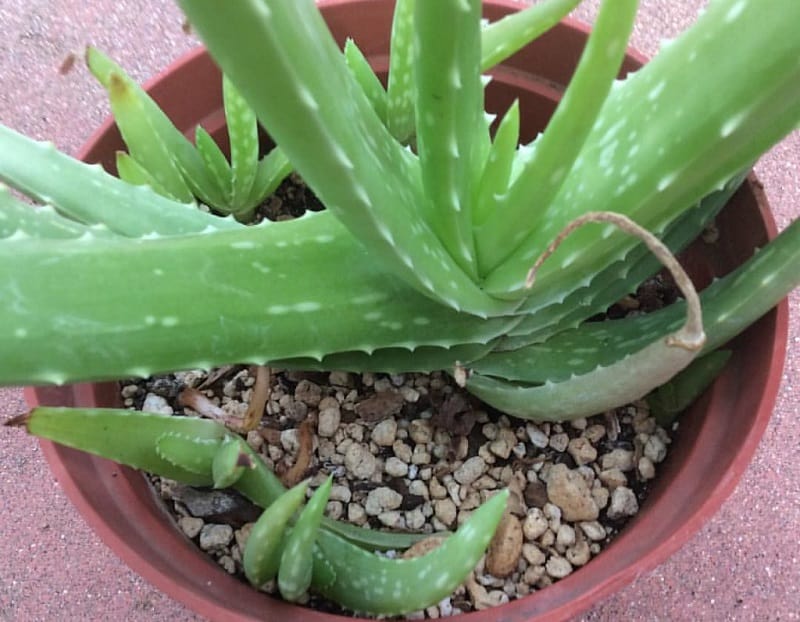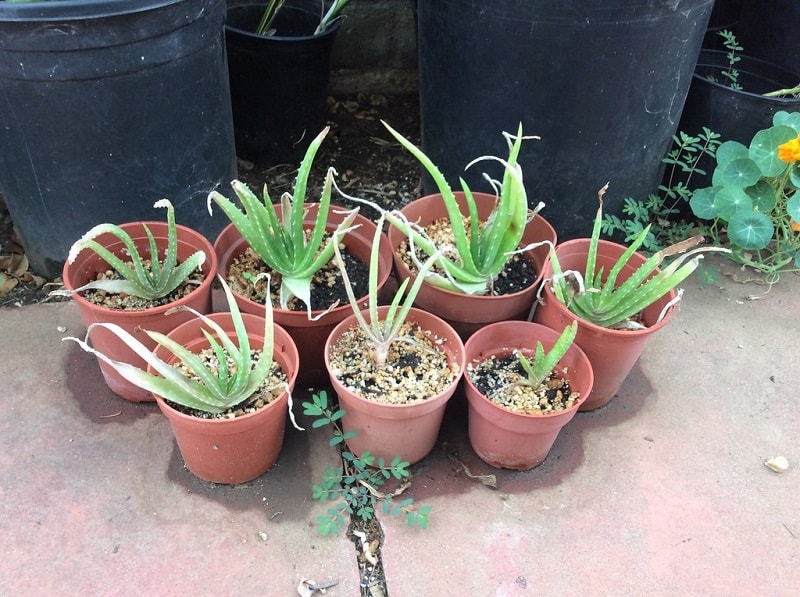How To Revive Aloe Vera Without Roots: A Comprehensive Guide
Reviving an aloe vera plant without roots may seem challenging, but with the right care and techniques, it is entirely possible to restore its health. Aloe vera is a resilient plant that can adapt to various conditions, making it a popular choice for both novice and experienced gardeners. If your aloe vera plant has lost its roots due to overwatering, rot, or other issues, don't despair—there are effective methods to bring it back to life.
Many aloe vera enthusiasts face the dilemma of reviving their beloved plants after they lose their roots. Whether you're dealing with a neglected plant or one that has suffered from root rot, understanding the proper steps can save your aloe vera and prevent further damage. This guide will walk you through the process step by step, ensuring your plant thrives once again.
In this article, we'll explore how to revive aloe vera without roots, including essential tips, techniques, and expert advice. By the end, you'll have a clear understanding of the best practices to rejuvenate your aloe vera plant and keep it healthy for years to come.
Read also:Pottery Painting In Charlotte Your Ultimate Guide To Unleashing Your Inner Artist
Table of Contents
- Understanding the Problem: Why Does Aloe Vera Lose Roots?
- Tools and Materials Needed to Revive Aloe Vera Without Roots
- Step-by-Step Guide to Revive Aloe Vera Without Roots
- Choosing the Right Soil for Aloe Vera Revival
- Watering Techniques for Rootless Aloe Vera Plants
- Optimal Lighting Conditions for Reviving Aloe Vera
- Using Fertilizers to Boost Aloe Vera Growth
- Propagation Methods for Rootless Aloe Vera
- Preventing Future Root Loss in Aloe Vera Plants
- Frequently Asked Questions About Reviving Aloe Vera Without Roots
Understanding the Problem: Why Does Aloe Vera Lose Roots?
Aloe vera plants lose their roots for several reasons, and identifying the underlying cause is crucial for successful revival. Common causes include overwatering, root rot, pests, and environmental stress. Overwatering is one of the primary culprits, as it leads to waterlogged soil, which suffocates the roots and promotes fungal growth.
Signs of Root Loss in Aloe Vera
- Yellowing or browning leaves
- Soft, mushy base
- Wilting despite adequate water
- Roots turning black or brown
By recognizing these signs early, you can take immediate action to save your plant. Understanding the problem is the first step in learning how to revive aloe vera without roots.
Tools and Materials Needed to Revive Aloe Vera Without Roots
Before starting the revival process, gather the necessary tools and materials to ensure a smooth and effective procedure. Here's a list of items you'll need:
- Sharp, sterilized scissors or pruning shears
- Potting soil specifically designed for succulents
- A well-draining pot with drainage holes
- Cinnamon powder or rooting hormone (optional)
- A clean, dry workspace
Having these tools on hand will make the process more efficient and increase the chances of successfully reviving your aloe vera plant.
Step-by-Step Guide to Revive Aloe Vera Without Roots
Reviving an aloe vera plant without roots requires careful attention to detail and patience. Follow these steps to restore your plant's health:
Read also:Christian Molnar The Rising Star In Modern Entertainment
Step 1: Inspect the Plant
Examine the aloe vera plant closely to assess the extent of root damage. Remove any dead or decaying leaves and trim the base if necessary.
Step 2: Clean the Base
Wash the base of the plant gently with lukewarm water to remove any soil or debris. Ensure the base is clean and free from rot.
Step 3: Allow the Plant to Dry
Place the aloe vera plant in a dry, shaded area for 2-3 days to allow the cut ends to callus over. This step is crucial to prevent further rot.
Step 4: Plant in Fresh Soil
Pot the aloe vera in fresh, well-draining soil, ensuring the base is securely planted but not buried too deeply. Avoid watering immediately after planting.
By following these steps, you can give your aloe vera plant the best chance of regrowing its roots and thriving once again.
Choosing the Right Soil for Aloe Vera Revival
Selecting the appropriate soil is vital for reviving aloe vera without roots. Succulent-specific soil mixes are ideal, as they provide excellent drainage and prevent water retention. You can also create your own mix by combining:
- Coarse sand
- Potting soil
- Pumice or perlite
This combination ensures proper aeration and drainage, creating an optimal environment for root regeneration.
Watering Techniques for Rootless Aloe Vera Plants
Watering a rootless aloe vera plant requires a delicate balance. Overwatering can exacerbate the problem, while underwatering may hinder recovery. Here are some tips for effective watering:
- Avoid watering immediately after repotting
- Wait for the soil to dry out completely before watering
- Use a spray bottle to mist the soil lightly
Monitoring the soil moisture and adjusting your watering schedule accordingly will help your aloe vera plant recover successfully.
Optimal Lighting Conditions for Reviving Aloe Vera
Proper lighting is essential for the revival of aloe vera plants. Place your plant in a location with bright, indirect sunlight. Avoid direct sunlight, as it can scorch the leaves and stress the plant further. If natural light is insufficient, consider using a grow light to supplement illumination.
Benefits of Indirect Light
Indirect light promotes healthy growth and reduces the risk of sunburn. It also encourages the plant to focus its energy on root development rather than leaf production.
Using Fertilizers to Boost Aloe Vera Growth
Fertilizing a rootless aloe vera plant should be done cautiously. Use a balanced, water-soluble fertilizer diluted to half strength. Apply the fertilizer sparingly, once every 2-3 months, during the growing season. Over-fertilization can harm the plant and hinder recovery.
Organic Fertilizer Options
- Compost tea
- Seaweed extract
- Fish emulsion
These organic options provide essential nutrients without overwhelming the plant.
Propagation Methods for Rootless Aloe Vera
If reviving your aloe vera plant proves challenging, propagation is an excellent alternative. You can propagate aloe vera through offsets, also known as "pups," or by leaf cuttings. Here's how:
Propagation by Offsets
- Gently remove the offsets from the mother plant
- Allow them to dry for a few days
- Pot them in fresh soil
Propagation by Leaf Cuttings
- Cut healthy leaves from the mother plant
- Let the cuttings dry and callus
- Plant them in moist soil
Propagation ensures the continuation of your aloe vera plant's life cycle, even if the original plant doesn't fully recover.
Preventing Future Root Loss in Aloe Vera Plants
To avoid root loss in the future, follow these preventive measures:
- Use well-draining soil and pots with drainage holes
- Water sparingly and only when the soil is dry
- Provide adequate lighting and ventilation
- Inspect the plant regularly for signs of pests or disease
By maintaining proper care practices, you can ensure the long-term health and vitality of your aloe vera plant.
Frequently Asked Questions About Reviving Aloe Vera Without Roots
Q: Can aloe vera survive without roots?
A: Yes, aloe vera can survive without roots if given the right conditions and care. The plant can regenerate its roots over time with proper attention.
Q: How long does it take for aloe vera to regrow roots?
A: It typically takes 2-4 weeks for aloe vera to regrow roots, depending on environmental conditions and the plant's overall health.
Q: Should I use rooting hormone for aloe vera?
A: Rooting hormone is optional but can help speed up root development. Cinnamon powder is a natural alternative that also acts as a fungicide.
Conclusion
Reviving aloe vera without roots is a rewarding process that requires patience, attention to detail, and proper care. By following the steps outlined in this guide, you can restore your aloe vera plant's health and prevent future issues. Remember to choose the right soil, water sparingly, and provide optimal lighting conditions to ensure successful revival.
We encourage you to share your experiences and tips in the comments below. Additionally, explore our other articles for more insights into plant care and gardening. Together, let's nurture healthier, happier plants!


